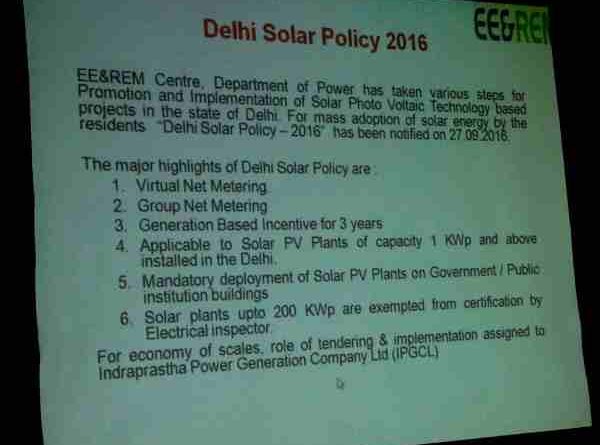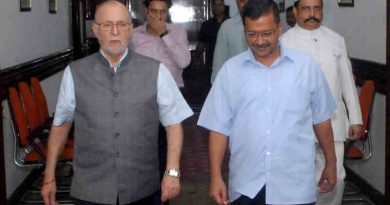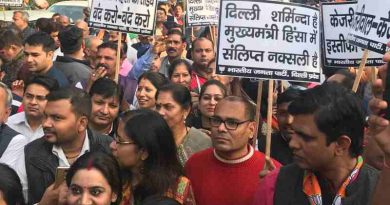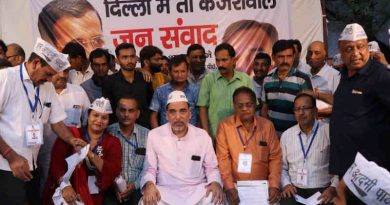Lt. Governor Anil Baijal Urges Delhi Residents to Use Solar Energy
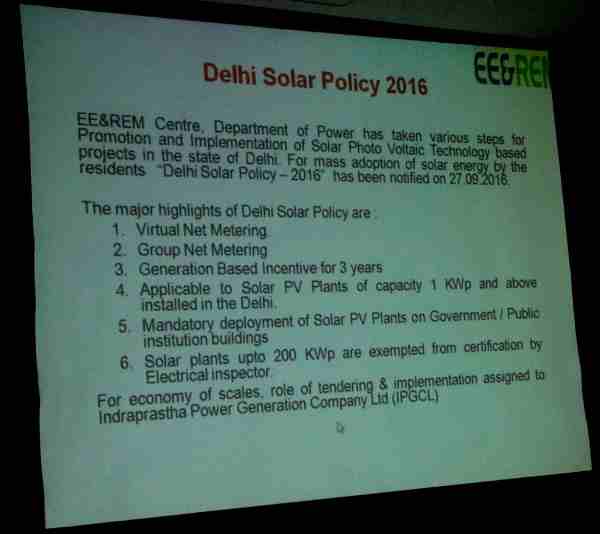
The Lt. Governor of Delhi Anil Baijal has urged the Power Department to evolve a Standard Operating Procedure (SOP) for facilitating user agencies in installation of solar power systems.
In a meeting held Thursday, Baijal suggested that DISCOMS (electricity distribution companies) should spread awareness among consumers about the long term benefits of solar power and government incentives for its generation.
It was observed that due to high demand of power in peak season, Government of NCT of Delhi envisaged to explore possibilities for alternate source of energy to make a step towards reducing dependency on power from outside Delhi.
[ Is Delhi Ready to Avert Fire Mishaps? Case: DPS Housing Society ]
Delhi is a landlocked state, and almost 300 sunny days and sufficient rooftop space is available for installation of Solar Photo Voltaic (SPV) systems. Delhi has a huge potential of 2500 MWp (annual generation approximately 3,500 million kWh) solar energy.
In order to promote solar energy, the Department of Power has taken various steps for the implementation of SPV Technology-based projects in Delhi.
For mass adoption of solar energy by the residents, “Delhi Solar Policy – 2016” has been notified with major highlights such as Virtual Net Metering, Group Net Metering, generation-based incentive for 3 years, and so on.
[ Humanitarian Crisis Persists at DPS Housing Society in Delhi ]
The Lt. Governor also asked Secretary (Power) of Delhi Government to prepare a roadmap for installation of solar panels on the rooftop of government buildings, court buildings, prison building, malls, schools, hospitals, etc. which are located in Delhi.
Chaired meeting on Solar Power generation in Delhi. With 300 sunny days & plenty of rooftop capacity, huge solar potential untapped.(1/3) pic.twitter.com/7U3O8PpCwf
— LG Delhi (@LtGovDelhi) June 1, 2017
Finally, noting that renewable energy is the future and a strong antidote for air pollution, Baijal desired that brief pamphlets communicating all the advantages of solar power, incentives available from the government for its adoption and mechanisms to generate solar power at the individual household level may be distributed by the DISCOMS along with the electricity bills.


